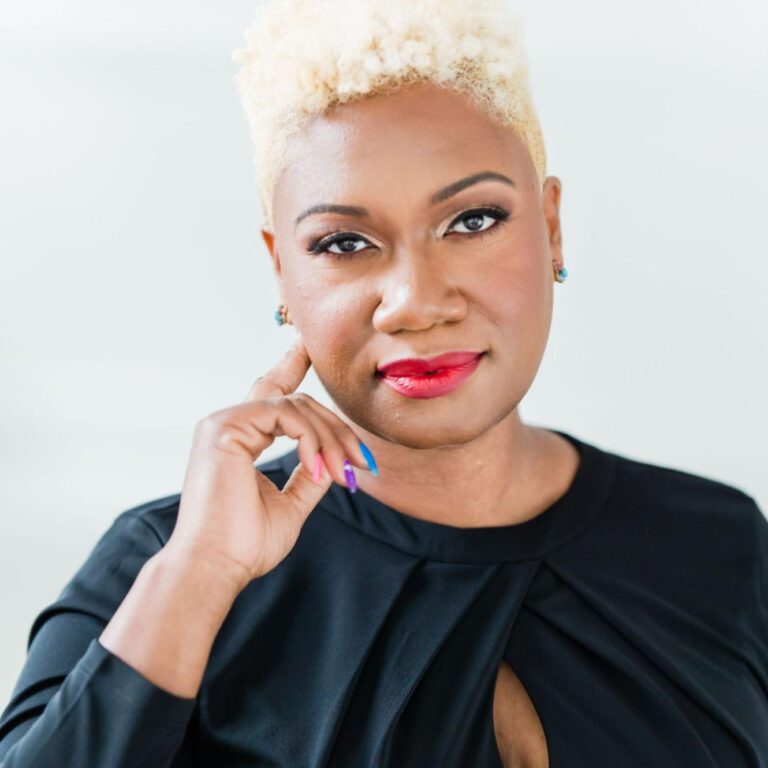Featured Story
A Trauma Resilient Paradigm Shift
by Micha James
Advocate, Leader and TRC Community Champion

Grace, forgiveness, healing, and the adage of “do unto others as you would have them do unto you” are a few words I heard as a child and what life constantly reminds me of as a daughter, granddaughter, sister, niece, cousin, sister-in-law, friend, mother, colleague, collaborator, advocate and lifelong resident of Winston-Salem, North Carolina. Trauma resilience work incorporates many of those terms, but some of the trauma resilience practices were new to me until I was invited to participate in the Crossnore Center for Trauma Resilient Communities (CTRC) program in 2020 by Kellie Easton, a dynamic leader and activist in the Winston-Salem community.
Resilience is a word I wasn’t a fan of because it felt like an added responsibility to an already heavy life as a Black woman in America. Its introduction was during the middle of an exhausting pandemic when one of the co-founders of CTRC, Beatriz “Bea” Vides, was clapping, stomping, and speaking loudly while being very close to my personal space early one morning. I’m not a morning person and also an extreme introvert, so I was quickly counting down the time to when this session would end. Bea must have sensed my feelings because she got louder, closer, and more intentional about her engagement.
2020 was an emotionally rough year for EVERYONE. However, my loss of hope and build-up of anger around racism and inequities started well before the pandemic. My participation as a committee leader for a local leadership program, where I wanted to have real discussions around race, left me scarred because instead of attempting to see life from my lens, I was reprimanded. That was until George Floyd was murdered, which is when members of the program were forced to name race and racism. Their actions left me with little hope in participating in yet ANOTHER program, especially one led by an outside group. I quickly learned that Bea knew her stuff and she acknowledged my experiences. I shortly realized that CTRC was just what the city of Winston-Salem needed.
Being seen and heard is a consistent desire of humans but rarely is it acknowledged and acted upon. Aging adults complain about not being seen in the healthcare system and young people complain about being invisible in their homes and schools. Trauma resilience recognizes the impact of an individual’s lived experience. It incorporates simple practices such as a “Community Meeting” where you ask others, “How are you feeling? What’s your goal for today? Who can support you?”, while also understanding that simple doesn’t always mean easy. Those three questions can be difficult to answer when you hear you can’t use “fine” or “okay”, which may be your typical responses to how you are feeling. It’s not all that easy to think of a goal for the day when you may have had to force yourself out of bed only to face adversities. It’s easier to say “everyone in the room” can support you to expedite the practice because it’s hard to name a coworker, community member, or stranger when you don’t trust them.
Speaking of being seen and heard, I am preparing to attend a leadership training which states “the goal is to create personal communicative and behavioral habits that support policies and practices that foster healthy living among us and foster just working environments-even in contested spaces.” This training will help me show up better as an individual, or on the micro level, and the Trauma Resilience Communities program allows me to show up better as a community member, or the mezzo level. This work MUST continue so that we can affect changes in social norms, or the macro level.
There is a slide in the TRC training presentation that not only shifted my outlook on trauma resilience but also caused me to be less judgmental. The title of the slide is called “Starting a Paradigm Shift” and includes information from Drs. Sandra Bloom and Shawn Ginwright. The questions shift from “what’s wrong with you?” to “what happened to you?” to “what’s happening to you?“ to “what’s strong in you?” There is a lot of information in the training and it can be hard to learn and consistently incorporate practices. Yet, these four questions continue to stick out to me. Simple questions, but they are necessary to change the dynamics of the Winston-Salem community, the state of North Carolina, the country, and ultimately the WORLD!
You don’t know what you don’t know, but once you do know, you can’t unknow.